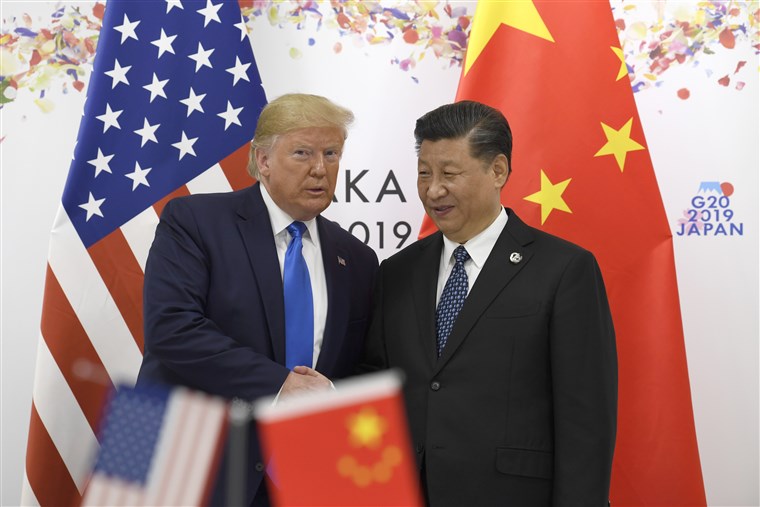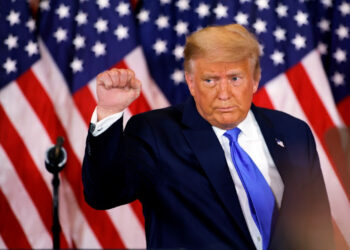Oil prices may rebound next week following the decision by the United States of America and China to restart trade talks.
Washington is expected to hold off new tariffs on Chinese exports, signaling a pause in the trade hostilities between the world’s two largest economies.
According to Reuters, the truce between the two super-powers at the on-going G-20 summit in Osaka, Western Japan, has offered a relief from a nearly year-long trade standoff which has seen the two countries slap tariffs on billions of dollars worth of each other’s imports, thereby disrupting global supply lines and slowing the global economic growth.
After meeting with Chinese President Xi Jinping, President Trump said the following to reporters-
“We’re right back on track and we’ll see what happens.”
[Real Also: Critical times for Nigeria’s oil money as US-China trade war escalates]
No new tariffs: There is a sigh of relief as President Trump revealed that following today’s meeting, there is no plan to impose new tariffs. While briefing reporters, Trump revealed that even though the U.S does not plan to lift existing import tariffs for now, the North American country would refrain from slapping new levies on an additional $300 billion worth of Chinese goods — a situation that could have effectively extended tariffs to everything else China exports to America.
“We’re holding back on tariffs and they’re going to buy farm products. If we make a deal, it will be a very historic event. I want to get it right.” – Trump

Lifting Ban from Huawei: Trump also announced that U.S. companies will be allowed to work with Huawei again. It’s a stunning, if not entirely surprising turnaround, coming just weeks after the Trump administration called Huawei a major threat to U.S. national security.
Huawei Technologies Co. Ltd is a Chinese multinational technology company that provides telecommunications equipment and sells consumer electronics.
“U.S. companies can sell their equipment to Huawei. We’re talking about equipment where there’s no great national security problem with it.
“I said that’s O.K., that we will keep selling that product, these are American companies that make these products. That’s very complex, by the way. I’ve agreed to allow them to continue to sell that product so that American companies will continue.”
In the meantime, Oil prices may rebound: Oil prices fell on Friday but posted their second straight week of gains ahead of the on-going trade talks between the U.S. and Chinese presidents. Basically, Brent crude futures settled unchanged at $66.55 a barrel, while the U.S. West Texas Intermediate (WTI) crude futures lost 96 cents to settle at $58.47 a barrel.
[Read Also: Oil prices spike after Saudi Aramco facilities suffer drone attack]
However, with the news of positive trade talks just reached at the G-20 summit, oil prices are expected to rally and investors sentiments will improve.
Similarly, there is a wide expectation for a further cut in crude oil supply when the Organization of the Petroleum Exporting Countries (OPEC) meets on Monday.
The Wall Street Journal reported that OPEC is set to extend its oil production cuts into the second half of this year, as the group and its allies contend with Middle East tensions that threaten crude supply and economic weakness in China that could crimp demand.
As part of the plan, it has been disclosed that Saudi Arabia will apply pressure to laggard producers, including Iraq and Nigeria, which haven’t complied with their pledged output cuts under the current agreement.

























